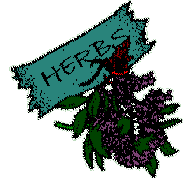 Herbs--A
Herbs--A 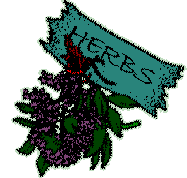
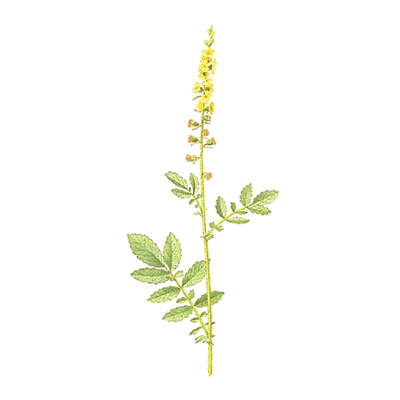 |
Common Names: Agrimony, Cocklebur, Sticklewort Latin Name: Agrimonia Eupatoria Parts Used: Dried shoots, flowers, and leaves Cultivation: Average dry soil in sun to part shade. Tolerates a wide range of pH. Hardy to zone 7. Cosmetic Uses: As an astringent skin toner Magickal Properties: Protection , sleep. It is a masculine plant associated with Jupiter and the element of Air. Magickal Uses: Use in protection and banishment spells or sachets. A sprig placed beneath the head will bring restful sleep. Medicinal Properties: Hepatic, astringent, diuretic, cholagogue, vulnerary Medicinal Uses: Gargle with an infusion of agrimony to relieve sore throat. Use as a poultice on sores. An agrimony bath helps soothe aching muscles and joints. Agrimony ointment will help heal bruises. Agrimony is a digestive tonic, and is thought to help regulate liver and gall bladder function. |
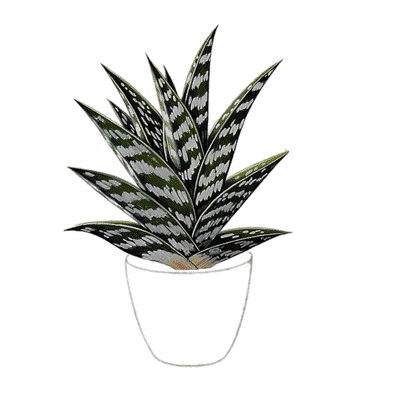 |
Common Names: Aloe, Burn Plant Latin Name: Aloe spp. Parts Used: Gel from the leaves Cultivation: Average, well-drained soil, full sun to light shade. Aloe is hardy to zone 10 and prefers neutral pH. Cosmetic Uses: Aloe can be used to treat oily skin, acne, and dandruff. Magickal Properties:Protection, luck. Aloe is a feminine plant associated with the Moon and the element of Water. Magickal Uses: An aloe plant in your house guards against evil influences and accidents. Medicinal Properties: Cathartic, external demulcent and vulnerary, emmenagogue, vermifuge, hepatic. Medicinal Uses: Scientists are confirming that aloe actually has tissue regenerative properties. It is also anti-bacterial and anesthetic. Use it to treat any kind of burn, skin sore, or even poison ivy. Cautions: Do not take internally, especially when pregnant or breastfeeding! Aloe is a purgative and stimulates uterine contractions! |
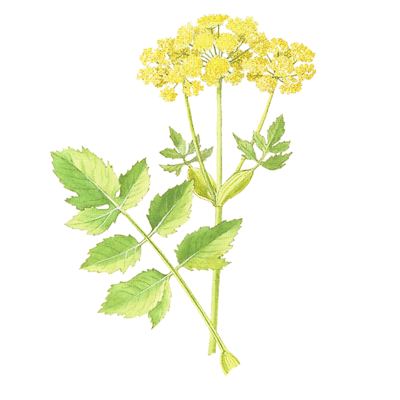 |
Common Names: Angelica, Archangel, Masterwort Latin Name: Angelica Archangelica Parts Used: The entire plant Cultivation: Moist well-drained soil in part shade. Angelica like a pH of 6.3 and is hardy to zone 3. Culinary Uses: Angelica has a sweet licorice flavor. Use the leaves raw in soups, salads, fruit dishes, and as a garnish. Add dried leaves to desserts. The roots have a stronger flavor; add to cookies, cakes, and breads. Candy the stem for a special treat, or steam it and serve like asparagus. Magickal Properties: Exorcism, healing, visions, protection. Angelica is a masculine plant associated with the Sun and the element of Fire. Magickal Uses: Use for protection from evil spirits and in exorcisms. Smoke the leaves for visions. Caution: Water Hemlock looks and grows in the wild much like angelica, but is very poisonous! For this reason I would not recommend harvesting angelica wild! |
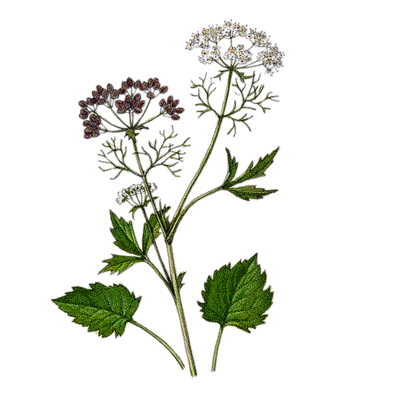 |
Common Names: Anise Latin Name: Pimpinella Anisum Parts Used: Seeds and leaves Cultivation: Anise likes light, dry, well-drained soil with a pH of 6.0. It's an annual, growing in full sun and its seeds require a temperature of 70 to germinate. Culinary Uses: Anise seeds have a very strong licorice flavor. It is used frequently in Greek, Scandinavian, East Indian, Moroccan and Arabic cuisines. Use the seeds in pastries, cakes, and cookies; they mix well with cinnamon and bay. Chop the leaves and use fresh in salads or as a garnish. Many liqueurs are flavored with anise. Magickal Properties: Youth, protection, purification. Anise is a masculine plant associated eith Jupiter and the element of Air. Magickal Uses: Use anise seed in protection baths, combined with bay leaves. Sleeping on an anise pillow will drive away nightmares. Hang a sprig of anise on your bedpost to restore lost youth. Medicinal Properties: Expectorant, anti-spasmodic, carminative, antimicrobial, pectoral, tonic. Medicinal Uses: Anise tea is used as a digestive aid and makes a nice after-dinner drink! The essential oil is an anti-microbial expectorant--use it in cough syrups. Anise oil used externally can help control scabies and lice. |
![]()
Herb List A to Z
| A | B | C | D | E | F
| G | H | I | J | K | L | M
| N | O | P | Q | R | S | T | U
| V | W | X | Y | Z |